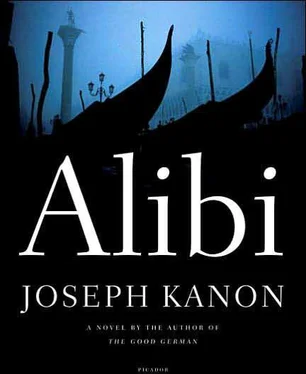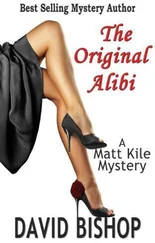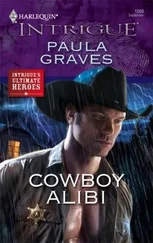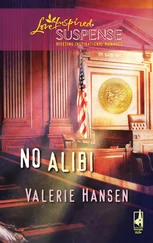Joseph Kanon - Alibi
Здесь есть возможность читать онлайн «Joseph Kanon - Alibi» весь текст электронной книги совершенно бесплатно (целиком полную версию без сокращений). В некоторых случаях можно слушать аудио, скачать через торрент в формате fb2 и присутствует краткое содержание. Жанр: Триллер, на английском языке. Описание произведения, (предисловие) а так же отзывы посетителей доступны на портале библиотеки ЛибКат.
- Название:Alibi
- Автор:
- Жанр:
- Год:неизвестен
- ISBN:нет данных
- Рейтинг книги:3 / 5. Голосов: 1
-
Избранное:Добавить в избранное
- Отзывы:
-
Ваша оценка:
- 60
- 1
- 2
- 3
- 4
- 5
Alibi: краткое содержание, описание и аннотация
Предлагаем к чтению аннотацию, описание, краткое содержание или предисловие (зависит от того, что написал сам автор книги «Alibi»). Если вы не нашли необходимую информацию о книге — напишите в комментариях, мы постараемся отыскать её.
Alibi — читать онлайн бесплатно полную книгу (весь текст) целиком
Ниже представлен текст книги, разбитый по страницам. Система сохранения места последней прочитанной страницы, позволяет с удобством читать онлайн бесплатно книгу «Alibi», без необходимости каждый раз заново искать на чём Вы остановились. Поставьте закладку, и сможете в любой момент перейти на страницу, на которой закончили чтение.
Интервал:
Закладка:
“He would have been ashamed. Imagine. Of this. Think of the rest of it, what it would have done to him.” Talking to the air, to herself.
We passed a shop with Hebrew lettering.
“This is the ghetto?”
“Almost. The edge. In the beginning you had to live on the island, where the campo is. It’s easy in Venice to separate people. One island, three bridges. At night they put chains across, to keep everybody in. Except sometimes they let a doctor out, if a Christian was sick. My father used to say, no wonder the Jews liked medicine. It got them out of the ghetto.”
“But that was the Middle Ages.”
“Until Napoleon,” she said, playing tour guide. “Then you could live anywhere. Of course, most people stayed here, nearby. It was what they were used to. You see the buildings at the end, how high? They ran out of space in the ghetto, so they had to build on top. Nowhere else do you see buildings like this-six stories, seven. So many stairs.”
We turned off the main street into the narrower Calle Farnese, where we were shielded even from moonlight, forced to rely on a corner light and a few slivers coming from the shuttered windows.
“Here,” she said, stopping about a block before the bridge. “You see up there? Those windows? My aunt lived on the other side. My mother’s sister. They used to talk across. Like cats, my father said.”
We stood there for a few minutes, looking at the house and seeing nothing-ordinary windows like all the others, a door flush with the street. Around us, a smell of canal debris and damp plaster. A cat ran past, then disappeared into a shadow. A drab back calle. But Claudia was seeing something else, her eyes fixed on the dark walls as if she were looking through them to the rooms inside, her own past. Family dinners. Homework. Radio. How different could it have been? Then the change-backdoor patients, unofficial. Curfews. Her aunt’s window shut tight.
“What happened to her?”
“My mother? She died when I was eight. Oh, my aunt. In the roundup, the first one.”
“With the air raid sirens.”
She looked at me. “Yes, with the sirens. You remembered. You can see, in a street like this, how noisy it would be.” An alleyway, every shout an echo. “Come, see the rest.”
She led me over the bridge onto the island and through a passage so low I had to duck my head. We came out into a larger campo with a well in the center, an enclosed patch of faint moonlight entirely surrounded by the built-up houses, walled in.
“You see there, those windows, five in a row? That was the synagogue-out of sight, but a visitor could find it by the windows. Five, for the five books.”
I looked up, involuntarily counting the windows, then turned slowly, taking in the whole campo, dingy and peeling, a tree with spiky winter branches, not a hint of warmth anywhere, the coldest place I’d seen in Venice. It seemed utterly deserted, as if everyone had gone away, leaving a few lights on by accident.
“When was the roundup?”
“Oh, dates. All right,” she said, adopting a guide’s voice, “dates. You know Italy surrendered in forty-three? The king surrenders. September. Mussolini, he goes to Salo, and of course the Germans come in. So now, here, it’s the occupation. New Jewish laws, much worse. Now we are enemy aliens. My family, here since Rome, now we’re aliens. The broadcast was-when? End of November. I remember they came to Jona then for a list. He was head of the community, and the Germans asked him for a list of the Jews living here. Two thousand, I think. Everybody. A good man-my father knew him. What could he do? Yes, tomorrow, he told them, and that night he warned us. Then he killed himself. So he was the first. But now we knew-run, hide if you can. Like rats. You see over there?” She pointed north to a long gray building, prisonlike. “The nursing home. They couldn’t run. Some couldn’t even move. So they were easy to arrest. You see, without the list it was harder, they had to take who they could find.”
“Like your aunt.”
“She wouldn’t run. You have to imagine. Midnight, the sirens, people screaming, pounding on doors. She couldn’t move, the fear was too strong.” She shrugged. “So they took her. She scared herself to death.”
“But you hid from the Germans?”
“Germans? No, Italians. They used us to do it. Our own. Carabinieri, police, some Fascists. Maybe that’s why they waited till it was dark-maybe they didn’t want to be seen. Later it was SS. More efficient. With the police, it became a farce. They took everyone to Collegio Foscarini, but there were no facilities, nothing. So people came with food, they would throw food through the windows for the children. Ten days like that. A public embarrassment. So to Casa di Ricovero and they release the sick ones. They didn’t understand-no one could be released. So the SS came and arrested them again. A farce. But finally, the train. After that it was mostly SS, with their informers. Grini. He would take them through the hospitals, even the mental hospital. It wasn’t enough for them if you were crazy. You had to be dead.”
She folded her arms across her chest, hugging herself, rocking a little.
“You’re cold.”
“Of course we didn’t know they would go through the hospitals. We thought it was safe there. We were on the Lido then. Hiding, but not hiding. A vacation flat someone found for us, empty, you know. The neighbors pretended no one was there. We still had a little money. How much longer could it go on? It was just a matter of time, if we could wait it out. But then my father became too sick to stay there. He had a friend at the hospital, from the old days. He thought it would be all right. Use another name. Who would look in the critical wards? What for? They were already on their way to San Michele, almost dead.” She lowered her head. “But they did look.” She stretched out one arm. “ That one. Dr. Maglione. You think I would forget that face? Never. And then tonight, one look and I was back in that ward. But this time, champagne. Everyone smiling. And I thought, he got away with it. They all did. They got away with murder.”
“Not all of them.”
She waved her hand, dismissing this. “They’ll never pay. Who’s going to make them pay? You? Me? A scratch on the face. That’s my revenge, a scratch. And for that, which one of us, do you think, will no longer be welcome in your mother’s house?”
“It’s my house too.”
“No, hers. What do you think, we’re all going to be friends? If I saw him again, I would do it again. Spit and spit. I can’t help it-I don’t want to help it. I want to kill him.”
“No, you don’t.”
She lowered her head. “No. Then I would pay. So they always win.” She moved away, glancing up at the tall buildings. “Look at this place. Who gets an eye for an eye? All dead. It’s like a tomb now. I don’t even know why I came.”
“To show me.”
“Yes, to show you. What they did.” We stood for a minute looking at the silent campo, peering into the dark passages as if we were waiting for whistles and the stamping of boots to break the stillness. “You know what he said to me, my father? When they took him for the train? ‘God will never forgive them.’ But he was wrong. They’ll forgive themselves.”
“Maybe not.”
“Oh, yes. It’s one thing you learn in the camp, what they’re like. Ask your doctor how he feels. Not even embarrassed. And then one night at a party somebody points a finger. You know what I’d like? To keep pointing-wherever he goes, all his parties, his hospital, just keep pointing at him until everyone knows.” She shrugged. “Except what difference would it make? It’s just what some crazy girl says. And who believes her?” She looked down. “Who would believe her?”
Читать дальшеИнтервал:
Закладка:
Похожие книги на «Alibi»
Представляем Вашему вниманию похожие книги на «Alibi» списком для выбора. Мы отобрали схожую по названию и смыслу литературу в надежде предоставить читателям больше вариантов отыскать новые, интересные, ещё непрочитанные произведения.
Обсуждение, отзывы о книге «Alibi» и просто собственные мнения читателей. Оставьте ваши комментарии, напишите, что Вы думаете о произведении, его смысле или главных героях. Укажите что конкретно понравилось, а что нет, и почему Вы так считаете.












